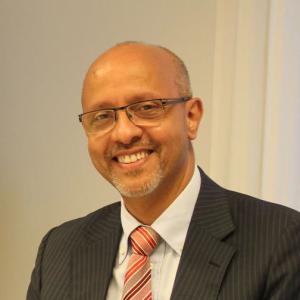An Urgent Call to Action: Revitalizing the Agenda for Sustainable Development
16 September 2023
It is the greatest wish of all humanity to achieve sustainable development by the year 2030. Unfortunately, this dream has now found itself in danger.
We must urgently turbocharge the fulfilment of the 2030 Agenda for Sustainable Development in Latin America and the Caribbean — including the achievement of its Sustainable Development Goals (SDGs) — while viewing the agenda as much as a commitment to human rights as it is a development plan.
Established in 2015 by 193 countries, the 2030 Agenda represents our roadmap to ensure a dignified life for all people, promoting an equitable, inclusive, and peaceful society, fostering prosperity, and taking care of our planet. Despite having the knowledge, resources and technology needed to achieve these ideals, we are progressing at a rate too slow to attain them.
As we approach the halfway point for the implementation of the 2030 Agenda, an unprecedented effort is required from all governments to revitalize and accelerate the implementation of the SDGs. The SDG Summit in New York, scheduled for September 18th and 19th, offers a crucial opportunity to raise ambition and translate it into concrete action.
We are in a moment of "polycrisis," facing simultaneously interconnected and prolonged crises with serious repercussions for people, society, and the environment. The alarm bells have already been rung with economic instability, the pandemic, conflicts in various regions, growing migratory movements, humanitarian crises, increased poverty, destructive climate events, and accelerated biodiversity loss, among other issues. These crises have negatively impacted the progress of the 17 SDGs and their 169 targets, especially in Latin America and the Caribbean, where an alarming 27% of the targets have regressed.
We are at a crossroads, but we still have the opportunity to correct course. Countries' commitments must be more ambitious and urgent. At the September SDG Summit, States must present credible and urgently needed plans to rescue the 2030 Agenda. At the national level, it is essential for governments to collaborate with all stakeholders, including the private sector, civil society, academia, and the scientific community, and to implement more integrated and transformative public policies.
To achieve real impact, countries must adjust national budgets and mobilize resources internationally. The global financial architecture must be updated and made more equitable, especially for Latin America and the Caribbean. This includes increasing long-term financing and taking measures to alleviate the debt of countries in the region.
Key measures to be pursued include investment in a just transition, sustainable resource management, energy efficiency, digitalization, and the creation of inclusive and fair job opportunities. These actions are fundamental to achieving the SDGs, and the United Nations advocates for a deep global transformation that addresses current challenges.
At the national level, we identify six priority challenges with significant transformative potential: strengthening social protection systems, ensuring decent work, transforming education, promoting digitalization; facilitating access to clean energy, reforming food systems to improve health and well-being, and effectively addressing climate change; biodiversity loss and pollution.
The United Nations teams, present in the 40 countries and territories of Latin America and the Caribbean, are committed to supporting governments and society at large in making these transformations a reality.
Our common future is at stake, and we have a seven-year deadline to turn things around. The risks of not accomplishing the SDGs are consequential, which is why we need to significantly increase ambition and action. Future generations will judge us by the decisions we make today, and we cannot afford to disappoint them. We must be steadfast in our determination to create a more sustainable and just future.
Before that, Ms. Kazana-Wisniowiecki worked for the United Nations Development Programme (UNDP) Regional Bureau for Europe and the Commonwealth of Independent States (CIS) in New York, providing support to UNDP country offices in Europe and Central Asia and working closely with UNDP’s strategic partners, including the UN Member States’ missions in New York. She represented UNDP on the Steering Committee of UNDP-Russia Development Trust Fund and, together with the Department of Political Affairs, led the work of the Inter-Agency Task Force on Ukraine.
From 2005-2010, Ms. Kazana-Wisniowiecki served as UNDP Deputy Representative in Ukraine, and created one of UNDP’s largest local development projects “Community Based Approach to Local Development in Ukraine”.
She began her professional career in Poland where she worked as a UNDP National Programme Officer in Warsaw, then as an international consultant for the United Nations Programme on HIV/AIDS (UNAIDS), and as an Advisor on international programme development and harm reduction for the Soros Foundation. She has facilitated South-South cooperation and knowledge transfer on HIV/AIDS prevention and care.
Ms. Kazana-Wisniowiecki hold a Master’s degree in Economics and International Relations from the Warsaw School of Economics.


















